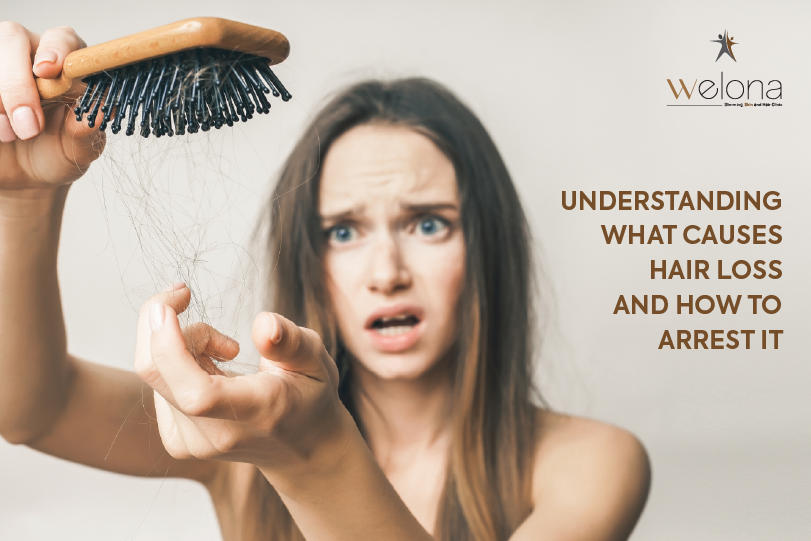
As we age over time, specific health issues rear their heads. Most men have experienced the scare of running a comb through their hair and finding a clump of hair in it. Hair loss is not something you want to take lightly. This is especially true if you’re also experiencing associated symptoms like hair thinning.
It’s normal to lose hair at an accelerated rate every now and then. During periods of stress and reduced sleep cycles, your hair will suffer and fall. When it becomes consistent irrespective of these conditions, that’s a hair loss problem. The technical term for it is alopecia, and it comes in different forms. If you have alopecia, it’s best to seek out effective hair loss treatment for men. Consult with professionals to know the best solution for you.
What causes our hair to fall at alarming rates, though? It seems to happen out of the blue, right? Wrong. Hair loss occurs due to specific reasons, through distinct mechanisms. We’ll break it down for you here.
Hair Loss Decoded
The first thing to understand here is that hair loss is triggered by a particular irregularity in the scalp. This effectively means that hair loss depends on a range of causes. Usually, no one factor can be singled out as the reason for hair loss. It can be a combination of multiple factors that culminate in severe hair loss.
Some of the factors are:
- Genetics. There’s nothing much you can do about this one; neither is it anyone’s fault. If a lot of people in your family are bald, then the chances of becoming bald yourself are high. There are plenty of genes that contribute to male pattern baldness alone.
- Scalp negligence. If you’re overdoing it with the harsh chemical products on your scalp, your hair is going to lose its thickness, right? If it starts thinning, beyond a point it’s going to start falling. Not providing adequate care for your scalp can also lead to balding.
- The medical side. Certain drugs are known to cause hair to fall as an unfortunate side effect. Some culprits are steroid-based drugs and blood pressure medications.
- Infections can also be a significant cause of baldness, especially if the symptoms it causes are chronic. One example of this is infection by the Demodex mite. It hijacks the nutrient supply to the scalp, causing thinning and balding.
- Hormonal effects. Hair fall is a marked symptom in people suffering from hyperthyroidism. The hormonal imbalance really does a number on your hair.
Alopecia itself manifests in different forms. Male pattern baldness is just one type, albeit a common one. Other variants include:
– Alopecia areata, also known as spot baldness occurs as an autoimmune disorder. Your body starts eradicating patches of your hair follicles, unable to recognize them as their own cells.
– Involutional alopecia is a result of hair loss from hair thinning. Like we saw earlier, this is also fairly common.
The natural question that follows this knowledge is, why to see a dermatologist for your hair-related problems? Wouldn’t a trichologist be a better option? If you think about it, baldness is as much a scalp problem as it is a hair problem. In that light, dermatologists can help treat alopecia effectively.
Which brings us to the next issue, which is: how to arrest hair loss for good? Up next, we’ll see how to go about putting all your hair loss woes to rest.
Combating Hair Loss
First things first, it’s essential to realize that the type of baldness is a governing factor in hair loss treatment for men. Based on this, experts will prescribe a suitable method for you with maximum effectiveness and minimal side effects. Some of the most common treatment methods for hair loss are through the administration of specific drugs.
- Minoxidil is a name frequently heard among those undergoing hair loss treatment. More commonly known as Rogaine, it’s a liquid that stimulates hair growth when applied in trace amounts on the affected region. This is most frequently used to treat male pattern baldness. It can have side effects in some patients, however.
- In instances of alopecia areata, immunosuppressants will be prescribed to curb the effects of the autoimmune disorder. Unlike minoxidil, immunosuppressants are not over-the-counter drugs and WILL need a prescription.
- In addition to this, people are continually coming up with new, natural methods for arresting hair loss. Some people try applying egg masks on their scalp to help preserve their hair. As with any natural process, the success rates can fluctuate, so be warned.
As with other hair issues, there exist surgical methods that provide more consistent results. They are performed under professional supervision and are undertaken only after taking all other factors into account.
- Hair transplants. This is a minimally invasive surgical technique that involves the replacement of defective hair follicles with healthy cells from elsewhere. The surgeons will guide you through the process and will hold consulting sessions even after surgery to monitor the effects.
- Scalp reduction involves extracting the hair-free scalp entirely and replacing it with a scalp full of hair. This is a very time-consuming and intensive process, however.
Alternatively, if you want a direct solution without going the “Why see a dermatologist?” route, then you can just buy a wig! They come in all shapes, sizes and colours nowadays.
Hair loss can put a big dent in people’s self-esteem at its onset. However, with some careful attention and treatment, it can be overcome with a variety of treatment methods. Drop by our Welona clinic for a consultation session for hair loss treatment!

